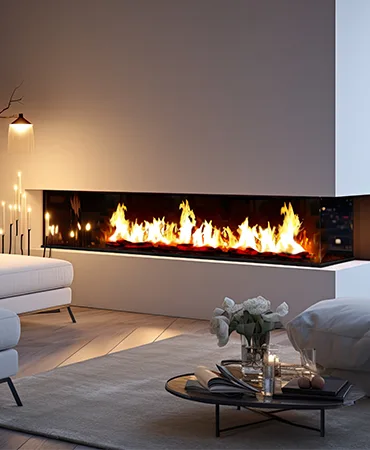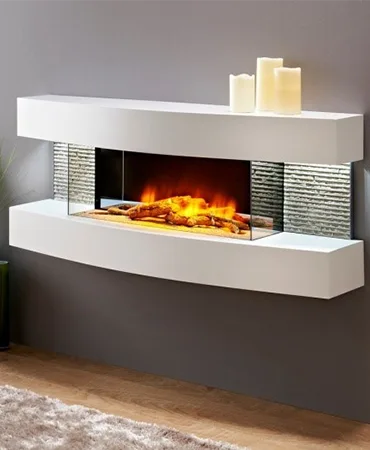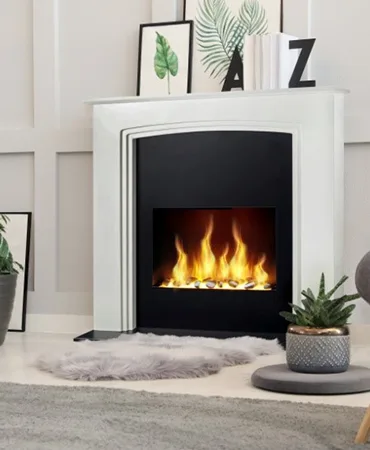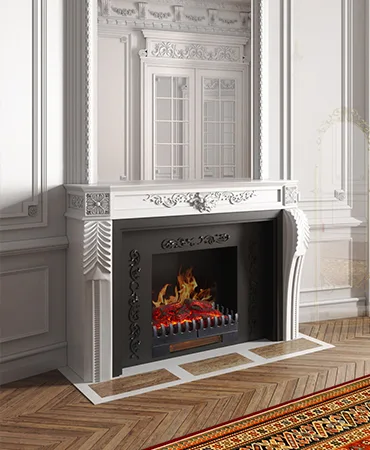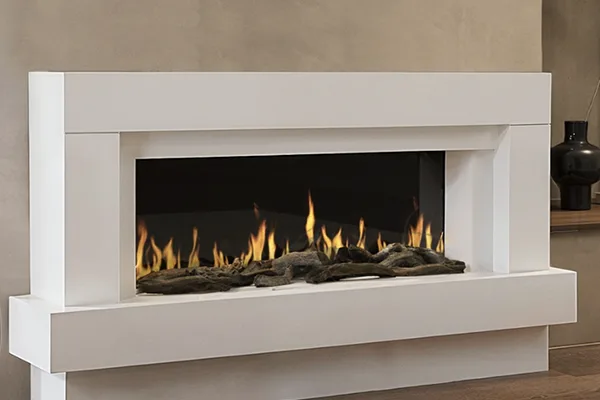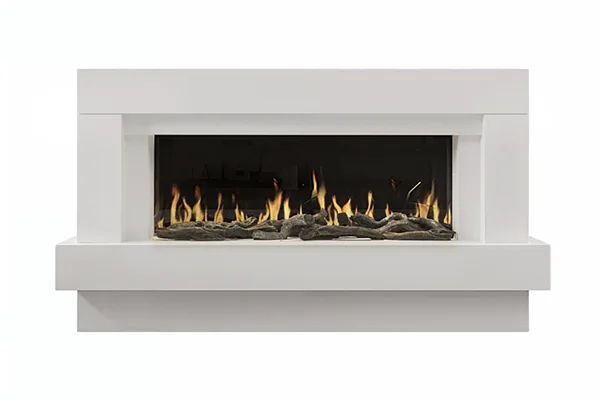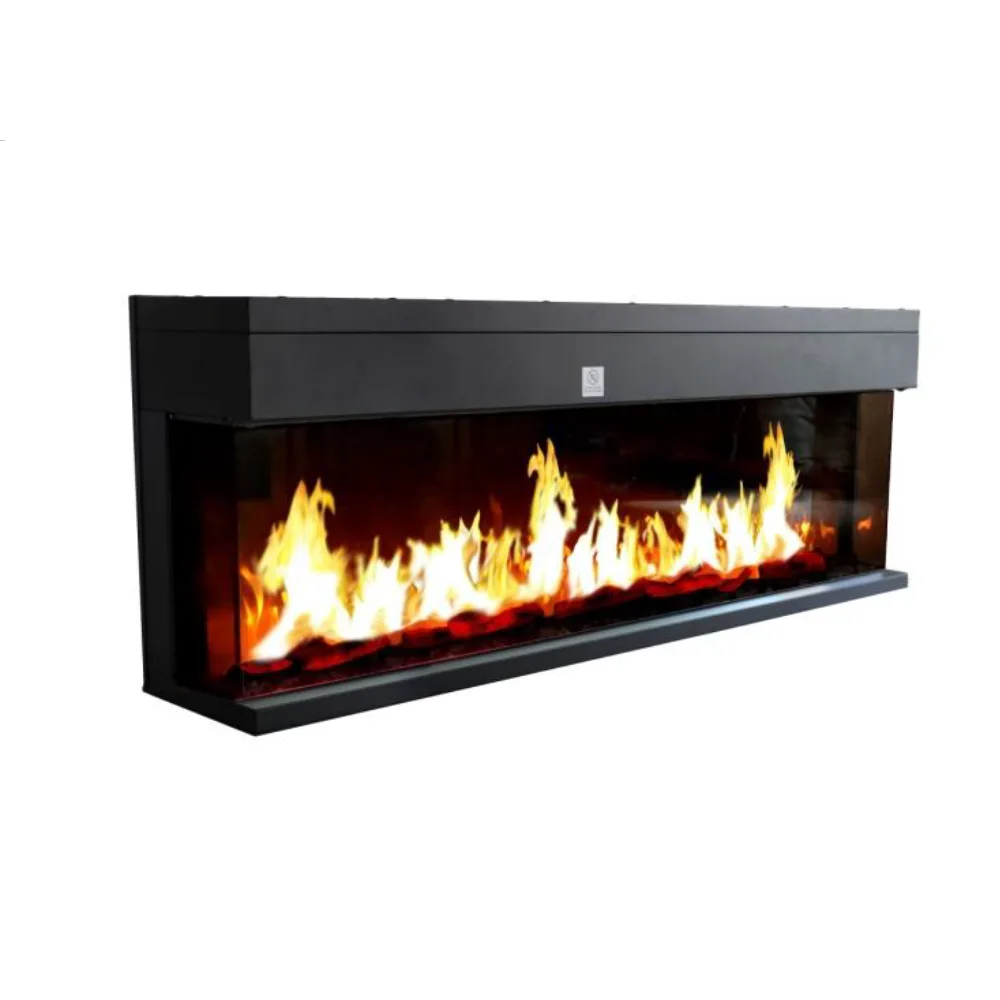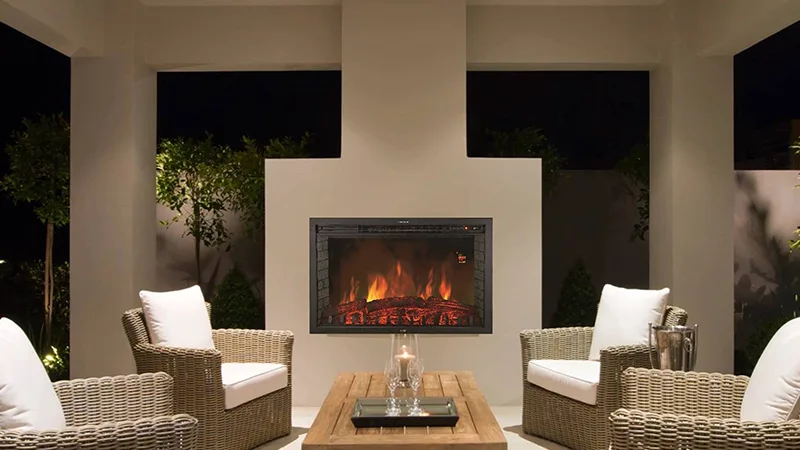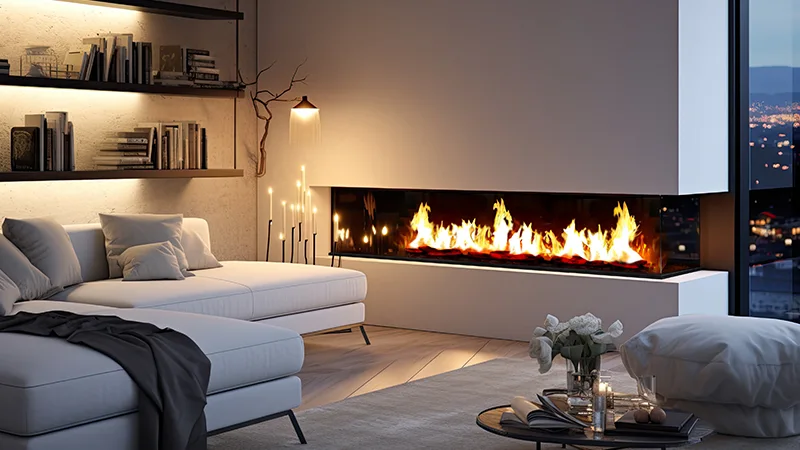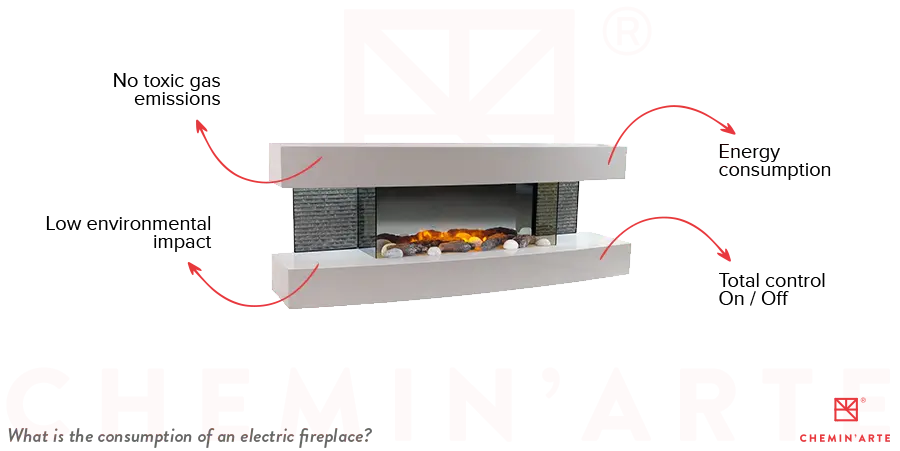Mindful of current ecological issues linked to energy consumption, we want to offer a source of energy that is economical in terms of energy consumption, thanks to our electric fireplaces.
Generally more ecological than a conventional fireplace, an electric fireplace has a lower environmental impact. It emits no carbon dioxide or carbon dioxide gas. It doesn’t contribute to the greenhouse effect, so it reduces your energy consumption. As a result, thecarbon footprint generated by your home is also lower. The electric fireplace is therefore a wise choice from both an economic and ecological point of view.
Consult our buying guide for additional information to help you make the right choice:
How well does an electric fireplace heat?
While the heating capacity of an electric fireplace cannot be compared to that of a conventional fireplace, adapting the power of your electric fireplace to the size of the room being heated will guarantee optimum heat distribution.
Electric fireplaces have become very popular, thanks in particular to their original design, and are now replacing the classic wood-burning fireplace, sometimes too restrictive compared to an electric fireplace Whether in terms of installation, maintenance or ecological impact, the electric fireplace wins on all counts.
What’s more, the electric fireplace is a truly effective source of heat. Knowing that a 10 m² room can be heated with just 1 kW, the electric fireplace warms your home without exceeding a consumption of 2 kWh. This category of fireplaces has the added bonus of being able to be switched on and off at any time, so you’re free to control the spread of heat. Finally, it’s important to know that a heat source such as an electric fireplace differs from bioethanol heaters in its heating power.
Although the electric fireplace can be compared to a fan heater, it remains an auxiliary heating system for a variety of reasons, including its inability to heat surrounding rooms and floors.
Does an electric fireplace consume a lot of energy?
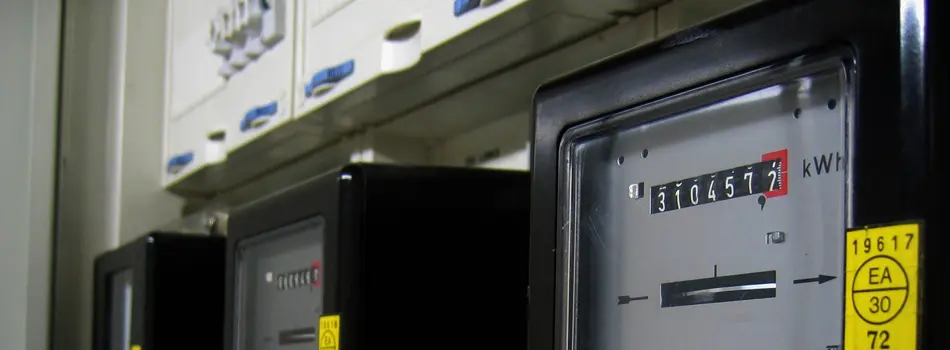
Installing an electric fireplace is as simple as plugging it in.
mains supply. Similar to the other electrical appliances in your home, its power and energy consumption depend on its wattage. Indeed, the heating power of your electric fireplace is a factor that influences its energy consumption, as most electric fireplaces have different wattages.
While the operating system of electric fireplaces is based on low-cost electricity consumption, some electric fireplaces have other features that can cause their energy consumption to fluctuate. This is particularly the case when it is used as a radiator. Equipped with a fan and an energy convector, all the elements involved in operating an electric fireplace must be taken into account when estimating its energy consumption. When choosing your electric fireplace, you need to consider the ultimate purpose of having such a device.
Opting for an electric fireplace gives you total control over its operation. You can easily switch it on and off as you wish. In this way, you ensure total control over your energy consumption.
For answers to all your questions about electric fireplaces, visit our FAQ page.
Do the flames of an electric fireplace consume a lot of energy?
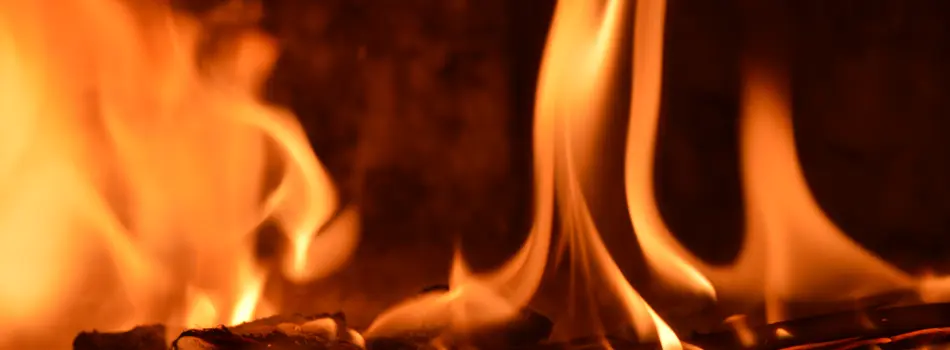
The flames (and the way they work) are the main attraction of your electric fireplace. It’s important to remember that none of the elements in your electric fireplace (flames, coal or wood) are real. Each of these elements is designed to counterfeit reality.
It’s all about illusion. The fake flames are generated by a LED lighting system and a precise play of light. They can be activated independently of the heating function of your electric fireplace. Some models even feature thermo-safety protection, which stops the power supply to the electric fireplace if it gets too hot. Flame distribution requires very few watts, generally between 700 and 2,000 W. As these fireplaces operate entirely electrically, no carbon dioxide or smoke is generated.
The illusory flames of electric fireplaces offer real savings in electricity consumption, thus protecting the environment in terms of energy costs and greenhouse gas emissions.
There are many different types of electric fireplaces, so you can find the perfect one for your home.

